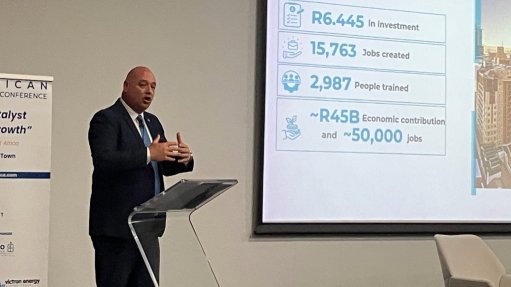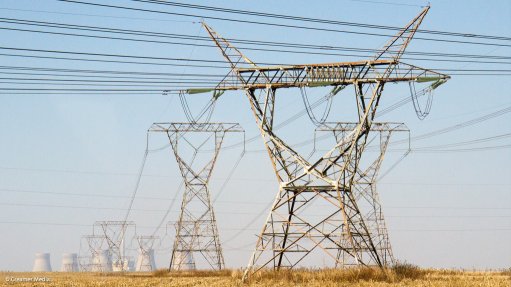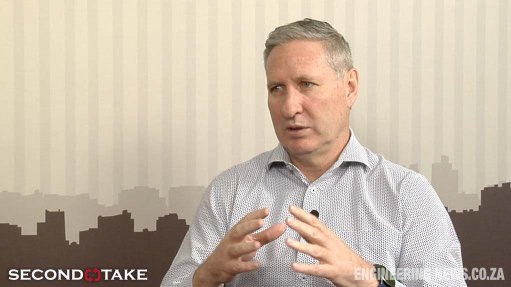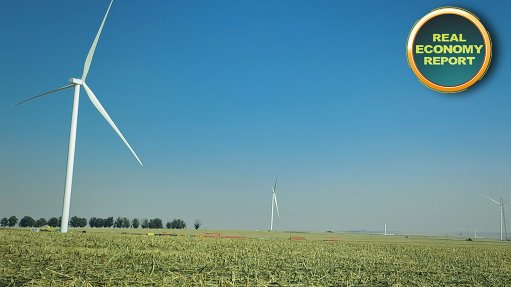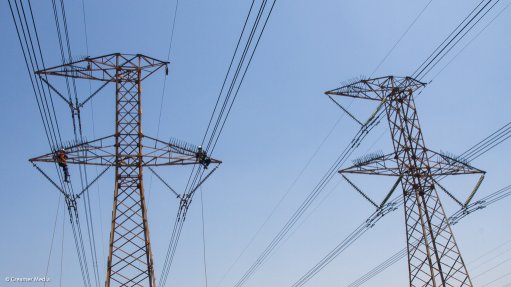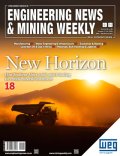Unlocking South Africa's payment revolution through smart regulation
This article has been supplied and will be available for a limited time only on this website.
By: Johan Gellatly, Managing Director - MD of Altron FinTech and Vaughn Hechter, Head of Customer Services, NuPay and Delter, Altron Fintech
While the South African Reserve Bank's (SARB's) decision to embark on an inclusive robust review of the National Payment System (NPS) to allow non-banks and fintech’s into the ecosystem is a game changer, we must be cautious not to overregulate as this may unintentionally stifle the very innovation we're trying to unleash.
Rather, regulatory authorities should focus their efforts on what happens once money enters and leaves the South African digital transaction domain.
Opening up the National Payment System through the SARB's Payments Ecosystem Modernisation (PEM) modernisation programme is a historic shift and is aligned with their Vision 2025 framework.
The programme enables non-banks and fintech’s access to the NPS on equal terms to introduce innovation as never before, it will create solutions at cost friendly price points, reduce cash dependency, and expand financial inclusion. The result? Previously invisible people now have access into the digital sector, allowing them to digitally transact safely and efficiently where they once relied on cash.
Removing cash from the system is a target under SARB’s 2050 vision. This ambitious goal aims to bring unbanked and underserved communities into the formal digital financial system by making digital payments accessible and affordable.
Moving cash to the digital domain strengthens security through full traceability and improves compliance with anti-money laundering requirements. With every transaction tracked end-to-end, regulators can better detect and prevent financial crime, while the overall economy benefits from greater transparency and resilience.
And digital or e-money is exactly the space in which non-banks and fintech’s have found a niche, enabling that sector to flourish, grow and innovate as they will be able to apply for direct payment licenses to conduct activities like issuing payment cards, operating e-wallets, providing faster payment services, and enhancing their system operator or third-party payment provider services. This provides vast freedom to operate in areas previously reserved for banks within the SARB’s regulated framework.
Direct access to the NPS accelerates everything. It enables faster deployment, quicker innovation, and lower costs by eliminating unnecessary margin contributing intermediaries. With fewer endpoints to control, the compliance burdens drop, and market entry becomes easier and cheaper. The result is a simpler, more efficient environment where new solutions reach consumers sooner and at lower cost.
The beauty of allowing non-banks and fintech’s access to the NPS lies in how quickly new non-banks and fintech’s can join the system – the infrastructure already exists, and in true South African fashion, consumers always make a plan for mobile platform connectivity.
In addition, the evolving payment landscape gives banks the opportunity to refocus on their core purpose: taking deposits and using those funds to support people and businesses and possibly partner with non-banks and fintech’s to enhance their offering. The complex movement of money by the various parties is where non-banks and fintech’s excel, creating opportunities to streamline processes, lower costs, and simplify transactions.
This dynamic, benefits consumers most as it drives competition and efficiency that makes financial services work better for everyone.
The immediate opportunity lies with the underbanked rather than the unbanked, who are harder to reach due to lower financial and digital literacy. Emerging banks have demonstrated how providing an app with every new account can drive adoption, even if active use takes time to build.
Targeting the underbanked enables lower pricing, faster access, and seamless digital experiences, creating pathways to extend services to more people and bring them into the formal financial system.
However, we must be cautious not to overregulate this transactional space. Instead, we should focus on safeguarding the start and end points by addressing cross-border risks through robust anti-money laundering legislation. South African domestic payments are already well regulated, as evidenced by how South Africa’s relative immunity to the fallout caused by the 2008 financial crisis.
If the entry and end points of transactions are well regulated, measured, governed and the flow of funds into and out of the system is properly understood, there's no need for authorities to expand intervention in the processes that happen in between.
The changes we're witnessing open real opportunities to improve how money moves and how people are served. But success depends on striking the right regulatory balance. Adding unnecessary controls only creates complexity and slows innovation without improving trust and security.
As we embrace this once in a lifetime payment revolution, let's remember that the goal isn't just technological advancement – it's about creating a more inclusive, efficient, and secure financial ecosystem for all South Africans.
SARB's bold move to open up the NPS represents exactly the kind of forward-thinking approach we need. Now it's up to payment system participants to ensure that innovation, not over-regulation, defines what happens next.
Article Enquiry
Email Article
Save Article
To advertise email advertising@creamermedia.co.za or click here
Comments
Press Office
Announcements
What's On
Subscribe to improve your user experience...
Option 1 (equivalent of R125 a month):
Receive a weekly copy of Creamer Media's Engineering News & Mining Weekly magazine
(print copy for those in South Africa and e-magazine for those outside of South Africa)
Receive daily email newsletters
Access to full search results
Access archive of magazine back copies
Access to Projects in Progress
Access to ONE Research Report of your choice in PDF format
Option 2 (equivalent of R375 a month):
All benefits from Option 1
PLUS
Access to Creamer Media's Research Channel Africa for ALL Research Reports, in PDF format, on various industrial and mining sectors
including Electricity; Water; Energy Transition; Hydrogen; Roads, Rail and Ports; Coal; Gold; Platinum; Battery Metals; etc.
Already a subscriber?
Forgotten your password?
Receive weekly copy of Creamer Media's Engineering News & Mining Weekly magazine (print copy for those in South Africa and e-magazine for those outside of South Africa)
➕
Recieve daily email newsletters
➕
Access to full search results
➕
Access archive of magazine back copies
➕
Access to Projects in Progress
➕
Access to ONE Research Report of your choice in PDF format
RESEARCH CHANNEL AFRICA
R4500 (equivalent of R375 a month)
SUBSCRIBEAll benefits from Option 1
➕
Access to Creamer Media's Research Channel Africa for ALL Research Reports on various industrial and mining sectors, in PDF format, including on:
Electricity
➕
Water
➕
Energy Transition
➕
Hydrogen
➕
Roads, Rail and Ports
➕
Coal
➕
Gold
➕
Platinum
➕
Battery Metals
➕
etc.
Receive all benefits from Option 1 or Option 2 delivered to numerous people at your company
➕
Multiple User names and Passwords for simultaneous log-ins
➕
Intranet integration access to all in your organisation













